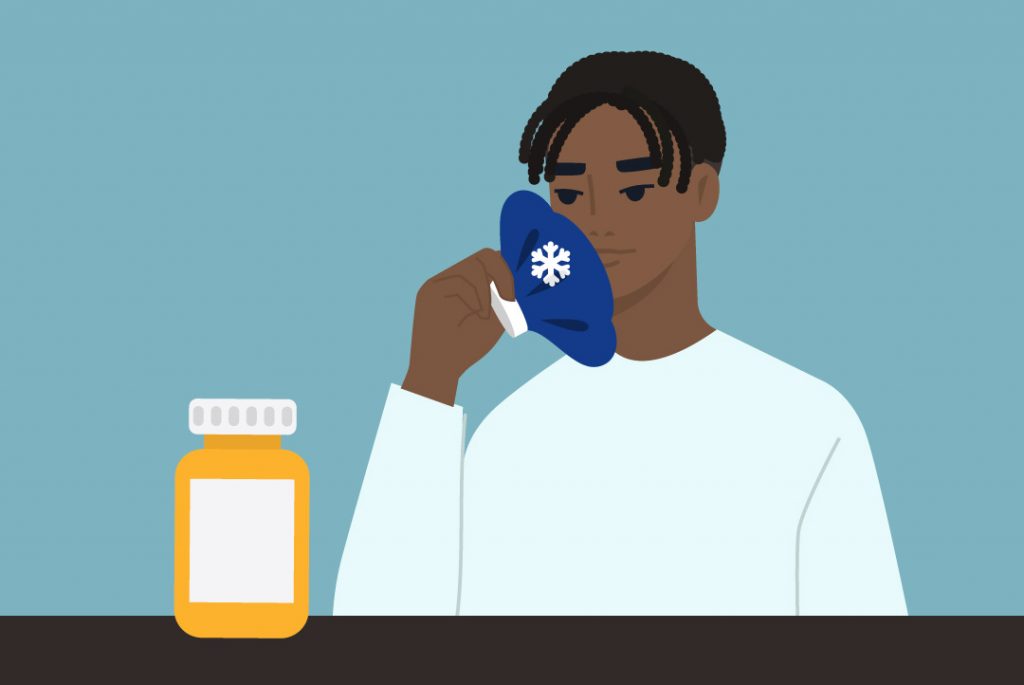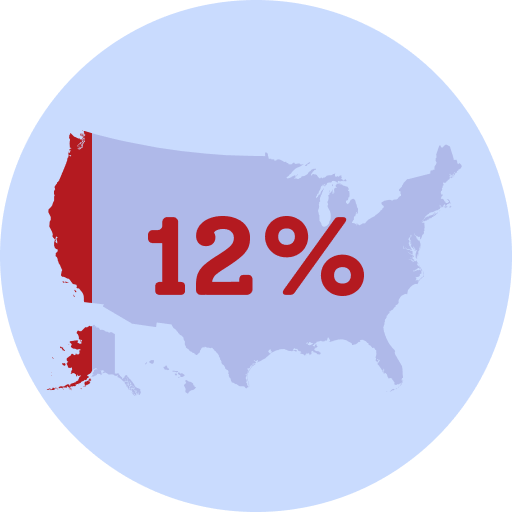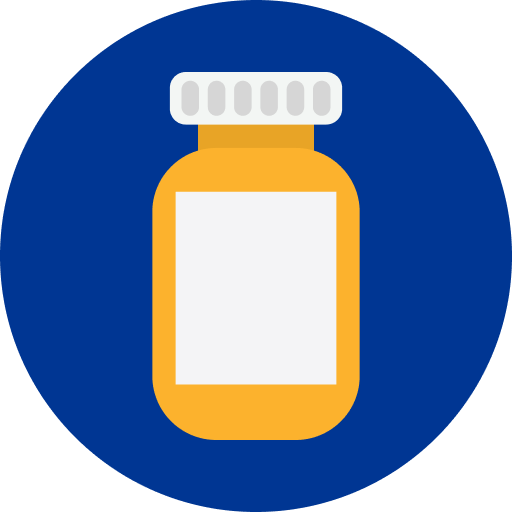LEARN MORE
OCTOBER 2022
Are opioids safe for dental pain?
Pain management is an important part of good dental care. Your dentist wants you to be as comfortable as possible, whether you’re having wisdom teeth pulled, a root canal or another potentially painful procedure. Sometimes that involves prescribing pain relievers, such as opioids, which are highly addictive. How do you stay comfortable and remain free of addiction? Start by discussing your concerns with your dentist.
Looking for more? Find other articles below

Talk with your dentist about pain management
Every day in the United States, 41 people lose their lives to prescription opioid overdose. Far too many of them begin their addiction journey in the dentist’s chair. Prescription opioids — like hydrocodone, oxycodone and morphine — can be prescribed by dentists or doctors to treat moderate to severe pain but can have serious risks and side effects.
Before undergoing a painful dental procedure, ask your dentist about the risks and benefits of prescription opioids for pain treatment. And be sure to ask if there are safer ways to manage your pain.
Here’s the problem

Dentists prescribe 12% of all immediate release opioids in the United States.1

Dentists are the main prescribers for patients 10 – 19 years old.2

A shocking 20% of patients with an initial 10-day prescription are still on them after a year.3
Here are some solutions
Before undergoing a painful dental procedure, ask your dentist about safer pain-management alternatives to opioids.
Studies show that a combination of ibuprofen (Advil®, MOTRIN®) and acetaminophen (TYLENOL®) is more effective, with fewer side effects, than opioids following wisdom teeth removal surgery.4
Yet another choice for managing pain after dental surgery is EXPAREL®, which is a nonaddictive, one-time injection at the surgical site. It helps relieve pain for the first few days after the procedure and may reduce the need to take opioids at all. Plus, EXPAREL is covered by all Aetna Dental® plans at 100%.
Anyone can become addicted
Opioids are highly addictive. Research shows that if you use opioids regularly, you may become dependent on them. That’s because opioids change how the brain and nervous system function. And there’s no way to know how your brain will react to opioids before taking them.
Are you at risk for opioid addiction?
You’re at higher risk for developing a dependence on or an addiction to opioids if you:
- Have a history of depression or anxiety
- Have a history of using or misusing alcohol, tobacco or drugs (prescription or street drugs)
- Take opioids for longer than a week
- Take more pills, more often, than your dentist prescribed

Is your pain medication an opioid?
Here are some common names of prescription opioids:
- Hydrocodone (Vicodin, Norco)
- Oxycodone (Percocet, OxyContin)
- Morphine
- Codeine (Tylenol #3, Tylenol #4)
- Fentanyl
- Tramadol (Ultram)
Tips for using opioids safely
Sometimes an opioid is the best medication for your pain level and situation. Here are some guidelines that can help you use them safely:
- Use opioid medications as prescribed and for severe pain only.
- As your pain gets better, wait longer between doses.
- Store your opioids in a secure, out-of-sight location.
- Do not mix opioids or other medications that can cause drowsiness.
- Do not mix alcohol and opioids.
- Do not share the pills with others.
- Dispose of any unused medications. Find a medicine take-back option near you at takebackday.dea.gov.
Tell your dentist about your use of:
- Prescription pain medications
- Benzodiazepines (Valium, Xanax, Klonopin)
- Sedatives (Ambien, Seroquel)
- Stimulants (Ritalin, Adderall)
- Antidepressants (Prozac, Celexa)
- Over-the-counter medicines, vitamins or herbals
- Recreational drugs (marijuana, etc.)
And if you’re pregnant, be sure to tell your dentist.
1 JADA. Prevention of prescription opioid abuse: the role of the dentist.
2 JAMA. Characteristics of opioid prescriptions in 2009.
3 Morbidity and Mortality Weekly Report. Characteristics of initial prescription episodes and likelihood of long-term opioid use — United States, 2006–2015.
4 Modern Healthcare. OTC meds more effective for post-surgery pain than opioids, study shows
Sources: Centers for Disease Control (CDC). Take action to prevent addiction.
North Carolina Department of Health and Human Services. Managing pain after dental treatment
For more information on your Costco dental coverage and on support for drug misuse issues, the following resources can help.

